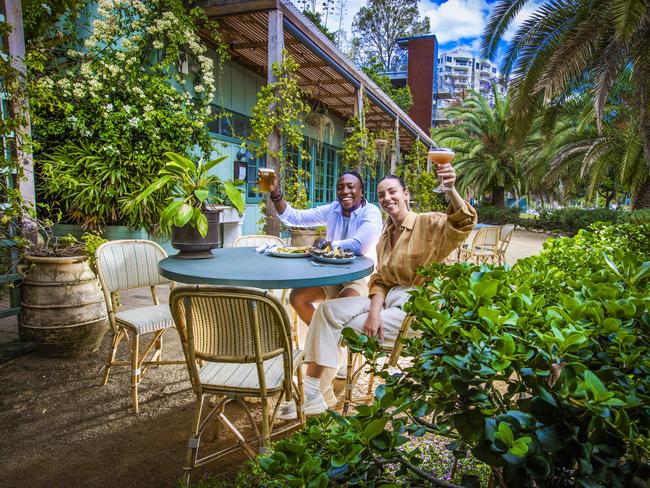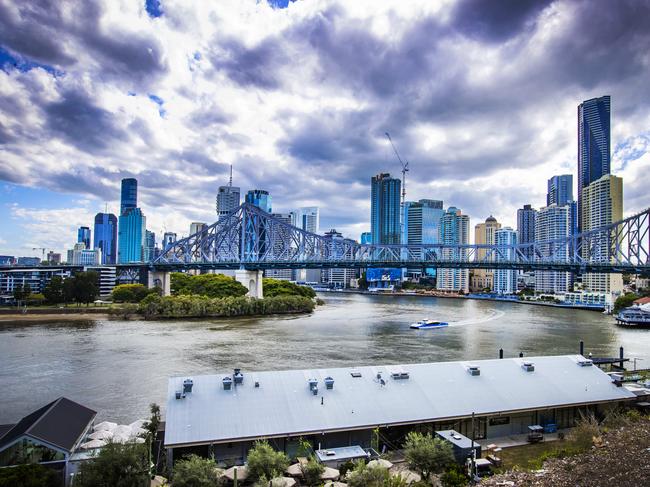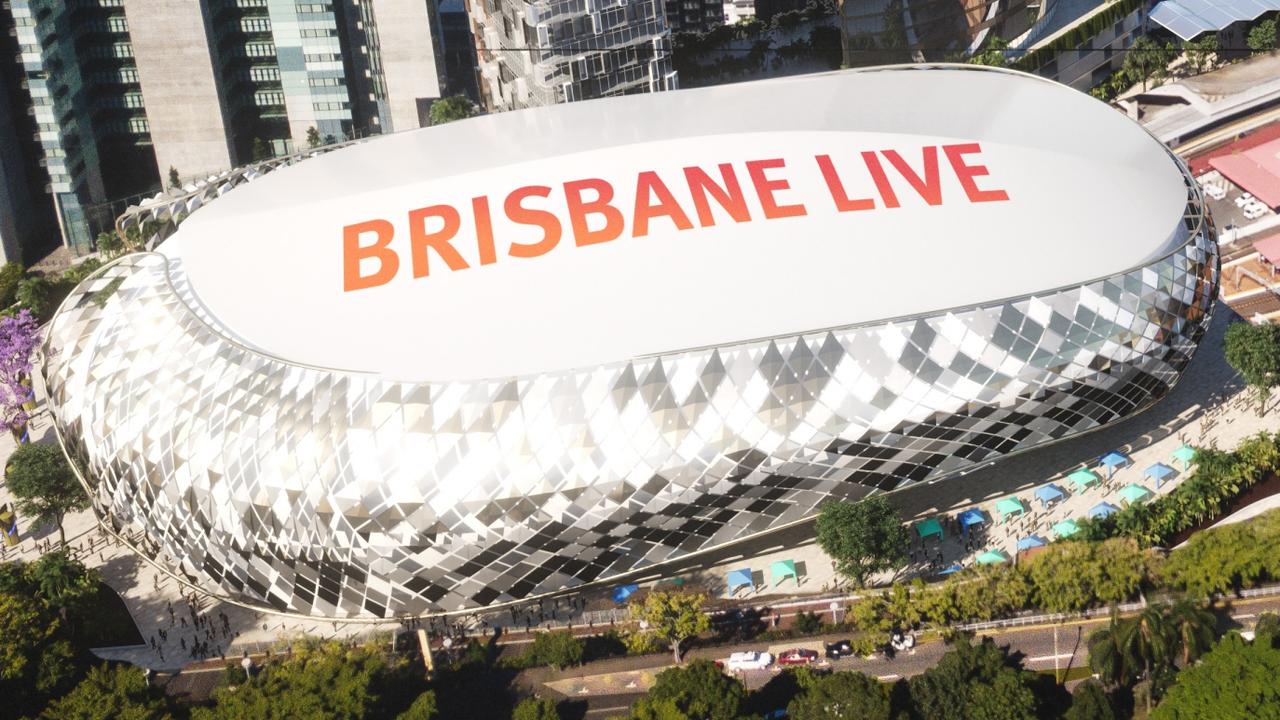Future Brisbane: Burbs and the bees: River City to become a subtropical paradise
Brisbane is set to transform into a subtropical paradise teeming with wildlife and an abundance of recreational parklands, experts say.
Future QLD
Don't miss out on the headlines from Future QLD. Followed categories will be added to My News.
A subtropical paradise teeming with wildlife, significant trees and an abundance of recreational parklands is what experts say the heart of Brisbane will be transformed into within the coming decades.
Embracing Brisbane’s subtropical climate will become one of the keys to its success over the next decade, with many businesses already leading the charge.
COMPLETE OUR SURVEY HERE, VOTE FOR THE PRIORITIES BELOW AND LEAVE A COMMENT AT THE BOTTOM OF THE STORY
Urbis group director of Future State James Tuma says the city is well on the way to becoming one of the great green cities of the world, and both societal expectations and the recognition of the economic benefits were driving that change.
“In a decade’s time and beyond, another 10 years after 2032, the city will have been transformed from a green perspective,” he said.
“It’s important to understand that’s physically green. So more parks, gardens, significant trees, shaded walks, fantastic streets, and green buildings,” Mr Tuma said.
“But also from a performance perspective. Initiatives around circular economy, net zero construction, zero waste to landfill and all of those things, which will start to make us a much more environmentally responsible city.”

A movement known as “rewilding” was gaining popularity around the globe, Mr Tuma said. At its heart were reforestation initiatives designed to bring back wildlife into urban areas, he said.
While much of Brisbane already features an abundance of greenery, compared with more dense cities, trees and wildlife would soon have a stronger presence throughout the landscape.
“There is an agenda about bringing animals, plants and birds and back into cities,” Mr Tuma said. “And I think that landscaping, or the greening of Brisbane, will absolutely see more habitat creation and better biodiversity outcomes.
“Being kind to the ecosystems that surround the city and bringing them into the city a bit more only makes it a more sustainable place and, actually, just a nicer place when you see living things.”
Mr Tuma said there wouldn’t be “a board room in Australia”, which didn’t begin a conversation about a project without starting with questions around sustainability, both from an environmental and a social perspective.

“There’s also a sense that, while that’s the right thing to do, it also makes business sense,” he said. “So when new buildings are being built, tenants are likely to be more attracted to buildings that have great green credentials, businesses that are seeking to attract Millennials and gen-Z kids know they have really strong values in that space.”
University of Queensland senior lecturer in urban planning Dr Dorina Pojani said going green would not only have economic benefits for the city, but also psychological benefits for those who called it home.
“It’s accepted research that it is more stressful living in the city, than living in the countryside,” she said. “We’re human animals, we evolved in the African savanna, we have lived in cities for a very short time. A city that looks greener is better for mental health, it’s more relaxing and it helps alleviate stress – these are public health issues.”
One business that has embraced the city’s climate and its much-loved river is Howard Smith Wharves.
Chief executive Luke Fraser said Brisbane’s natural environment was its greatest drawcard. “Our city has changed so much over recent decades,” he said. “From the revolution of footpath dining after Expo ’88 through to activating our best natural asset, the Brisbane River, with a fabulous network of ferries and CityCats and new pedestrian bridges.
“But maybe the greatest change is embracing our outdoor lifestyle and making the most of our subtropical climate,” Mr Fraser said.
“At Howard Smith Wharves, we see everyday locals and visitors enjoying what we now know is the best thing about living in Brisbane – they’re outdoors, enjoying our sunshine and connecting with our natural assets.”
Mr Fraser said one of his big hopes for the Olympic Games in 2032 was that the city continued to unlock opportunities to embrace its environmental side, and show visitors from around the world that experience. “We’ve seen first-hand how locals and visitors love green spaces, like Greenhouse at Howard Smith Wharves,” Mr Fraser said.
Mr Tuma said among the big shifts within the greening of cities was the combination of the attraction of more parklands, trees, flowers and wildlife, combined with companies getting on board for broader, business-led reasons. “Not that long ago, it was a beautification agenda, and therefore quite hard to achieve, because it was said to be not core to economic performance,” he said.
“But it’s actually now become proven to be central to attracting talent, creating fantastic business opportunities, underpinning tourism, and dealing with climate change.
“So while it does achieve that beautification component, it’s also so much more powerful than just that, in terms of shoring up the long-term economic, social and environmental sustainability of the city.”




